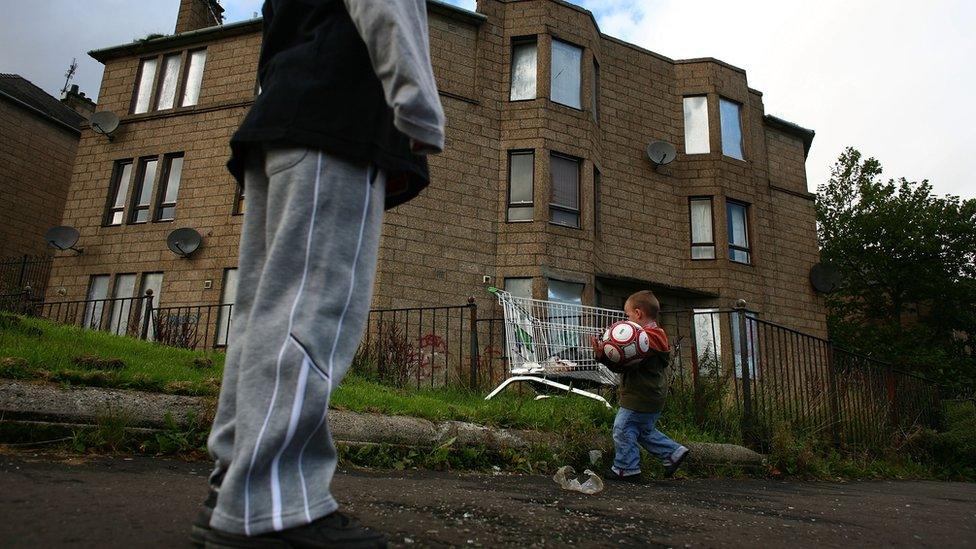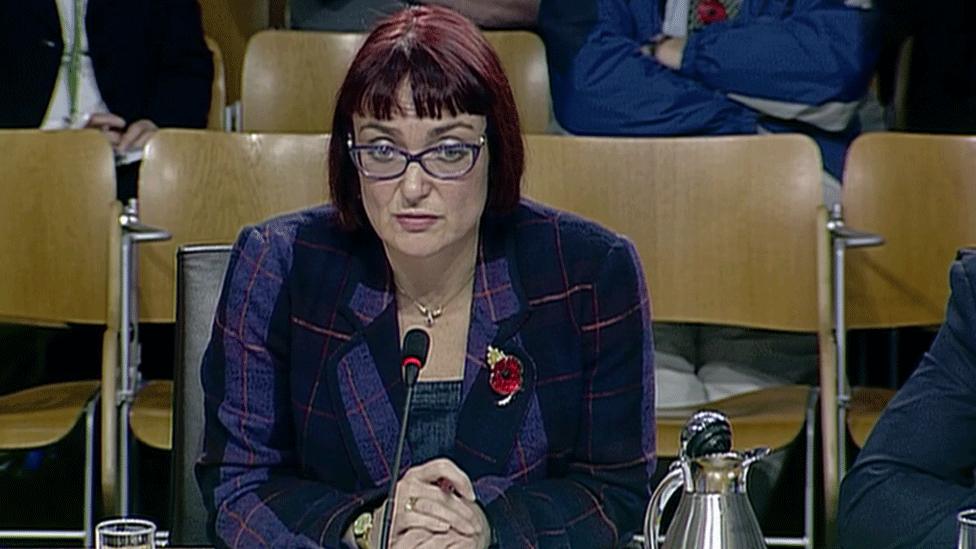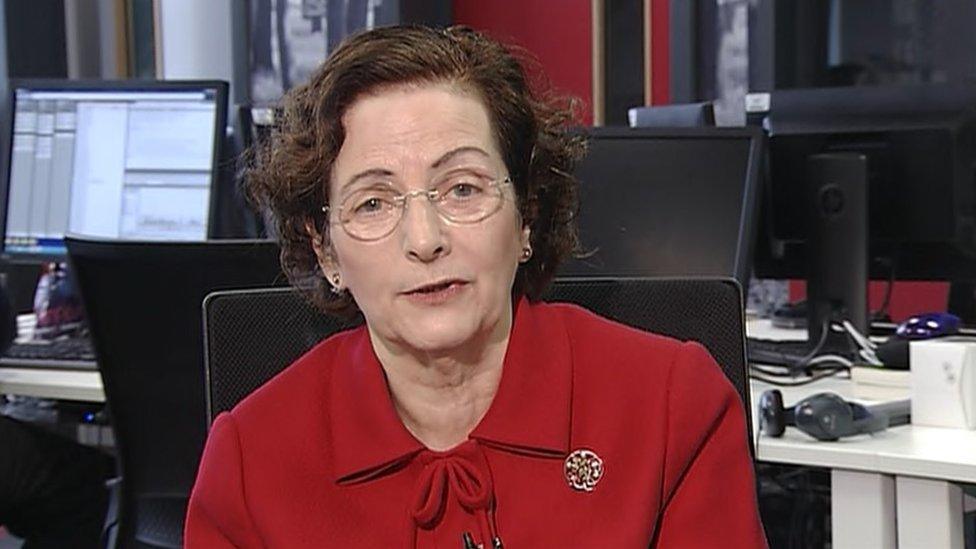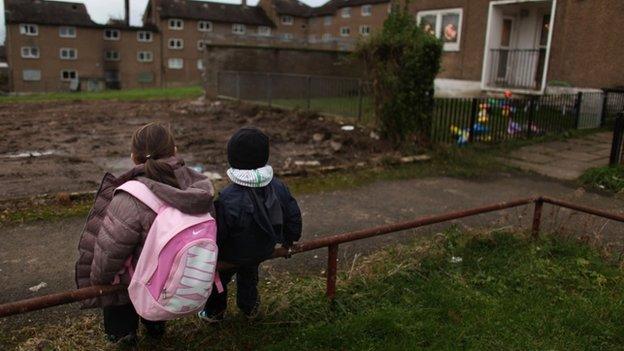Scottish government reveals vision to end child poverty
- Published

The new bill aims to significantly reduce the number of children living in poverty by 2030
The Scottish government has outlined its vision to end child poverty in the country.
A consultation document reveals key targets to reduce deprivation significantly by 2030.
The Child Poverty Bill's objectives are more ambitious than the ones scrapped by the UK government in January.
Equalities Minister Angela Constance said: "About one in five children live in poverty. This is unacceptable in a thriving country like ours."
Speaking at the launch of the bill in Dundee, Ms Constance said: "I want to be clear that we are serious about our ambition to eradicate child poverty and I want to work with partners across Scotland to make that ambition a reality."
Income protected by law
The bill proposes protecting families' income by law, with the aim that less than 10% of children should live in relative poverty and less than 5% in absolute poverty.
Relative poverty is where a family earns less than 60% of the national average while absolute poverty is where earnings are less than 60% of the average wage in 1999.
The consultation also suggests that less than 5% of children should live in persistent poverty or a low income or materially deprived home, which cannot afford a car or holiday for instance.
The targets, which are to be calculated after housing costs have been deducted, are to be achieved within 14 years.

Angela Constance says the new bill shows the Scottish Government's determination to end child poverty
Ms Constance said: "We are showing that we see child poverty and low income families as a priority.
"We will continue to strive towards equality of opportunity for everyone in Scotland and ending the cycle of poverty once and for all."
The Scottish government has already brought in measures to tackle deprivation and inequality, including promoting the Living Wage, free school meals and funded childcare.
'Better start in life'
Ms Constance said: "We have already done a lot of work in this area but we want to go further.
"We've promised children a better start in life and more opportunities as they grow up.
"We've offered parents more and better-paid jobs and greater security in which to bring up their families and we are committed to tackling deep-seated inequalities."
First Minister Nicola Sturgeon announced plans to introduce the Child Poverty Bill last month.

Nicola Sturgeon appointed Naomi Eisenstadt as the government's independent child poverty adviser
She said the UK approach was "fundamentally wrong" after the Conservative government in Westminster moved to repeal parts of the 2010 Child Poverty Act.
Ms Sturgeon also appointed expert Naomi Eisenstadt as an independent child poverty adviser.
The new consultation is intended to seek out views on the feasibility of the proposed targets and whether additional or alternative measures should be taken.
The bill will be introduced at Holyrood next year.
Ms Constance was speaking at a project intended to provide free meals to low income families over the summer.
- Published20 July 2016
